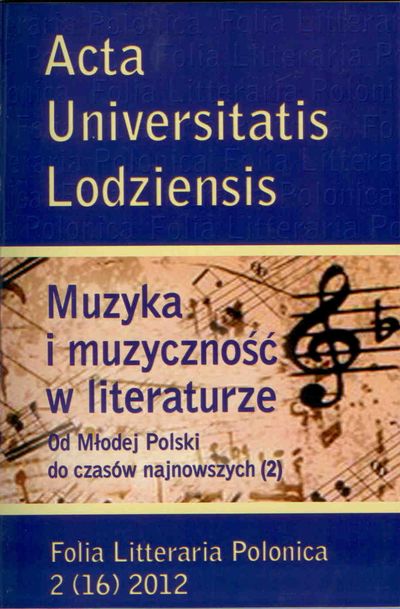Staccato czy asyndeton? Kilka uwag o „umuzycznionej” prozie powieściowej (na marginesie Syren Joyce’a)
DOI:
https://doi.org/10.18778/1505-9057.16.01Abstrakt
Word and music studies, which in recent years have been gaining more and more attention, still remain a source of a never-ending discussion on ‘the method’ and ‘the manner of speaking’ about the manifestations of a work of music, which, put within the frames of a literary medium, exist only in the rhetorical sense, thus leading to an individual and subjective interpretation of a musical scheme. Sirens, the eleventh episode of James Joyce’s Ulysses, which was not so far analysed in the intermedial context in Poland, invites to a musico-literary reading — not only due to the author’s explicit hints but also the tracks in the text itself which cannot be ignored by a scholar (the sound level of the text, the presence of music within the thematic scheme, the author’s confirmation of the fugitive form of Sirens). Instead of asking whether Joyce managed to create a literary equivalent of musical fugue (which would be absurd due to the semiologic aspect), I focus on tropes employed by Joyce to blur the borderlines between literature and music. When is it justified to use musical metaphors with respect to narratives? An overview of the western discussion over Sirens serves as a point of departure to reflect on essential issues concerning the musicalisation of fiction as such.
Pobrania
Pobrania
Opublikowane
Jak cytować
Numer
Dział
Licencja

Utwór dostępny jest na licencji Creative Commons Uznanie autorstwa – Użycie niekomercyjne – Bez utworów zależnych 4.0 Międzynarodowe.











